TL;DR
- Write code
- Read Code
- (Written) Communication
- Learn concepts – not technologies
- Learn Lisp
- Master your tools
- Control complexity (Simplicity)
- Read books (but don’t forget to practice)
- Understand the problem domain
- Learn to write good tests (or how to design well and write decoupled code)
Introduction
I am always pondering what practices, tactics, behaviours and approaches make up the most successful software engineers. After 15 years working in the industry, in small and big teams, with waterfall and agile processes, and after thousands of written lines of code, I present here an opinionated way of how to become an effective engineer.
Write Code
The most important thing in order to excel in programming is to practice regularly and write a lot of code. One cannot learn programming by only reading books or manuals.
Peter Norvig’s seminal article Teach yourself Programming in Ten Years [1] is the perfect guide for your journey to become a well-versed programmer. According to Norvig, learning to program is a marathon. To master a craft, it takes roughly ten thousands hours of practice. Daily exercises and challenging projects are mandatory to progress.
Programming is a team sport. Consequently the best way to learn is working on projects with other programmers. Thereby, be the best programmer in one project and mentor other team members. In another project, be the worst programmer and learn from your peers. Talk to other developers and study their practices. How do they approach problems, how do they structure their code, how do they think and what manners make them successful? Learn to work in different kinds of projects, e.g. start a green-field project and design the system from scratch or dive into a big, legacy codebase and maintain it for some time. Different project types will demand different skill sets from you. Also strive for direct feedback and be open for criticism from other developers.
The only way to learn a new programming language is by writing programs in it.
Dennis Ritchie
Computer science education cannot make anybody an expert programmer any more than studying brushes and pigment can make somebody an expert painter.
Eric S. Raymond
Read Code
Code reading is as important as code writing. Maybe even more important [2] because developers spent much more time on reading code than writing code.
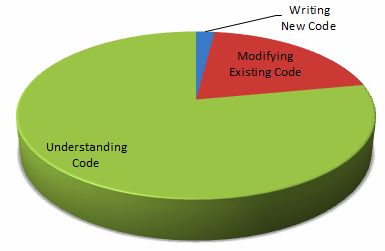
Code Reading skills are crucial in order to get familiar with a new codebase, to perform code reviews or just to understand the existing codebase to make a change.
Besides that, code can be enjoyable and thrilling like a good book. Nowadays with Github and other Open-Source platforms, code is ubiquitously available. By reading open-source, you get in touch with idiomatic code written by world-class engineers and you will automatically improve your own coding style. Some excellent codebases are:
If you have time to dip into your favorite library or framework, you will definitely gain some knowledge and aha moments . Reading the library code can debunk its magic and you can connect the dots. (thinking of Spring Boot and Ruby On Rails)
(Written) Communication
The craft of programming begins with empathy, not formatting or languages or tools or algorithms or data structures. - Kent Beck
Most projects fail, not because of the wrong technology or resources, but because of failed communication inside and across teams. Wrongly communicated requirements, wrongly communicated expectations and missed alignments are frequent project killers.
Since software engineering is a team sport. For that reason verbal and written communication skills are critical. Communication is daily business and happens in all kinds of occasions:
Pair Programming, a good session requires a lot of discipline by all participants
Code review, good review comments express intentions clearly and respect the author
Mentoring
Convincing/Advocating
Decision-Making process
Writing Design Docs
Writing software requirements
Written communication is particularly important, famous companies like Amazon and Hashicorp have an established writing culture which play a major role in their success stories.
Not only, we need skills for creating content but also for consuming content. Today, all of us get swamped with information via Emails, Slack messages, code review requests etc. Highly efficient developers process textual information quickly, organize the information in an accessible way and are able to filter the important facts. It is beneficial to invest some time into speed reading or other techniques which let you consume content faster.
Maybe you think now of counter examples like Linus Torvalds (creator of Linux) or Guido van Rossum (creator of Python). Either of them pulled off his respective project almost alone. But this is only true for the inception phase. On the long-run they created highly active and vivid communities which basically were the result of their great communication skills. Guido is known as the benevolent dictator, Linus is famous for his harsh but direct comments in the Linux Community and his ruthless clean code obsession.
Learn concepts – not technologies
New programming languages emerge all the time, the Javascript ecosystem breeds more and more npm-packages and all kind of technologies spring into life. We can never keep up with everything - and it also make no sense. On the contrary, it is very valuable to put in an effort to master the concepts behind technologies. By understanding the foundational concepts, you grasp the problems more thoroughly and hence it enables you to learn related technologies much faster. Without a deeper understanding of the primary concepts, one cannot utilize corresponding technologies adequately. A good example is Node.js, I encountered codebases where it was clear that concepts like async programming and the Event Loop were misunderstood because CPU-intensive tasks were executed inside the single main-thread which led to blocked requests and service outages.
Software Engineering concepts are timeless and can be applied to a certain extent in any programming language. Functional programming is my favorite because it makes your code more readable, testable and maintainable. Incidentally with a bit of effort, one can write functional code in most programming languages. Knowing such a powerful concept, ultimately improves your coding style in general since you are aware of high-order functions, pure functions and immutable (inherently thread-safe) data structures.
Highly recommended concepts:
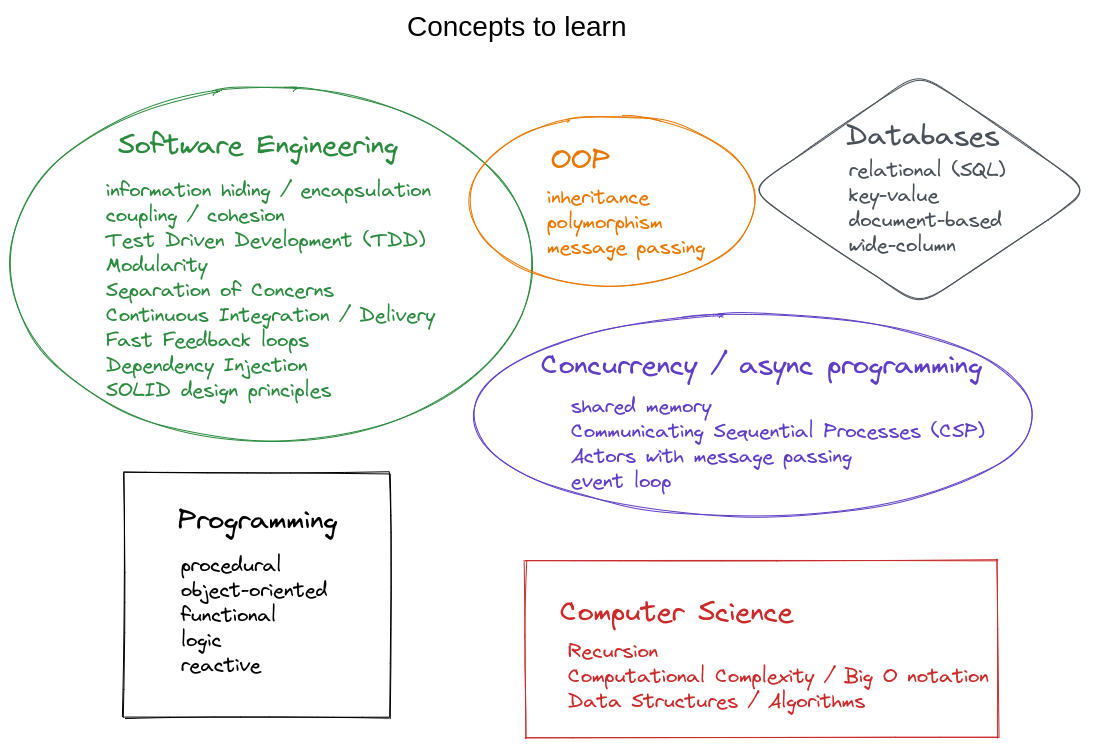
Learning and grasping underlying concepts is crucial but you cannot gain a full understanding without practicing and experimenting. Therefore you must choose a suitable technology and use it accordingly. For programming languages concepts, Lisp is a perfect candidate 🥰
Learn Lisp
LISP is worth learning for a different reason — the profound enlightenment experience you will have when you finally get it. That experience will make you a better programmer for the rest of your days, even if you never actually use LISP itself a lot.
Eric Steven Raymond [3]
Lisp empowers you to learn the most important programming language concepts with a single programming language. For example, Lisp supports procedural, functional and object-oriented programming. You learn recursion and get in touch with the power of interactive programming with a REPL (Read-eval-print loop). Further Lisp offers the most terrific meta-programming experience with its macro-system enabled by homoiconicity with S-expressions. Homoiconicity means that Lisp code is constructed of Lisp data-structures. Hence you are able to manipulate Lisp code via Lisp code. A mind-bending experience, if you only programmed in Java or C# all along. With this power at your fingertips, you can implement your own OOP system with objects, classes, inheritance and information hiding in a few hundred lines of Lisp code. For traditional programming languages like C, adding OOP was an enormous PhD task which took multiple years (remember C++). In Lisp it is an undergrad assignment which takes a few days! 🤯 Implementing concepts yourself is the best way to learn them, that is where Lisp really shines.
What I cannot build. I do not understand. - Richard Feynman
If we dig a bit in history, we’ll find out that Lisp is the second oldest programming language, invented in 1958. But Lisp was the first programming language which introduced ground-breaking features like: if-then-else (even if-clauses had to be invented back then), recursive functions, garbage collection, REPL interactive programming, macros, and modifying code at runtime from million miles away [4]. You will figure out that many “new” features of Java or C# are just copied from Lisp.

Unfortunately, Lisp’s powerful abstractions are bane and boon. The ease to implement an OOP system, a package manager or a unit test library led to hundreds of implementations whereby none of them established a standard. Lisp focuses on the highest productivity for an individual. Modern engineering languages like Go or Rust are optimized for team productivity and put their focus on less abstractions but more maintainability.
Last but not least, two of the best programming books use Lisp: Structure and Interpretation of Computer Programs (SICP) and Paradigms of Artificial Intelligence Programming (PAIP). SICP is the best way to learn programming and with PAIP you will enjoy one of the most elegant codebases ever written.
Master your tools
Just like a carpenter must be proficient with a hammer and a saw, a software engineer must be proficient with his tools. The most prominent developer tools are the operating system (OS), the programming environment composed of an IDE/editor, a compiler, a build system, a version control system and the programming language itself. Even an Internet browser and “knowing how to google” are parts of a well rounded toolset. The following tasks should be no-brainers for most experienced developers:
- search-and-replace in files
- navigate fast through a codebase
- branching, merging, resolving conflicts with a version control system
- building project with automatic tests
- writing idiomatic code in your favorite programming language
- understanding compiler error-stacktraces
- administrating your local machine with our favorite OS
- googling a programming question
Software tools are important for an apt programmer, but he should also be trained to use any kind of hardware judiciously, e.g. touch typing with a keyboard. Not only touch typing makes you a faster typist, but you will also detect typos faster on the screen which will lead to a faster feedback loop. Muscle Memory ensures you can focus on the problem instead of wasting brain power for typing.
Mastering all these tools is vital to become more productive. Thereby it is not relevant which specific OS (Linux, Windows) or editor (Emacs, Vim, or an IDE) you adapt. Nevertheless I recommend to invest your efforts in perpetuating tools such as the terminal or classic editors like Vim and Emacs. These tools exist since the “dawn” of computing and probably will be supported forever. Even if they died, modern tools would build upon their legacy and your learning efforts would not be wasted. For instance, Vim keybindings are now supported by most of the popular IDEs. Learning such everlasting tools will prevent you from time-consuming tool switching.
Control complexity
A great software engineer must always strive for simplicity. Continuously managing and controlling complexity is the only way to keep ever-growing projects maintainable. It is a crucial aspect of our craft:
Controlling complexity is the essence of computer programming.
Brian Kernighan, P. J. Plauger, Software Tools (1976)
The purpose of software engineering is to control complexity, not to create it.
Pamela Zave
The art of programming is the art of organizing complexity, of mastering multitude and avoiding its bastard chaos as effectively as possible.
Edsger W. Dijkstra, Notes on Structured Programming (1970)
Unfortunately, simple solutions are hard, often much harder than easy workarounds or shortcuts which are near at hand - simple is not easy [5]. Software engineers are permanently tainted by “easy” solutions due to time pressure or “it just works” mentality. They must resist the urge for such solutions by all means. Complexity is a treacherous beast which does not come with one big bad decision but creeps into the project by hundreds of tiny decisions made on a daily basis. It also boils down to work ethic: are you satisfied with any working solution or do you go the extra mile and make it simple?
The definition of genius is taking the complex and making it simple.
Albert Einstein
Our main job as software engineers is to retain a project’s maintainability forever which plays nicely together with controlling complexity:
Software Engineering encompasses not just the act of writing code, but all of the tools and processes an organization uses to build and maintain that code over time.
Software Engineering At Google
Complexity comes as in two flavours: essential complexity and accidental complexity. Essential complexity is the complexity of the problem itself and accidental complexity is everything else we add on top with our solution, e.g. solving the wrong problem, wrong technology used, over-engineering, bad software design etc.
In A Philosophy of Software Design [6] John Ousterhout defines the main symptoms and causes of software complexity. There are three symptoms. First change amplification: a simple change causes changes in a lot of different places. Second high cognitive load: one must know a lot about the whole system in order to make a small change. Third and the worst symptom is unknown unknowns: one does not even know all places where changes are necessary to implement a feature. All these symptoms are caused by uncontrolled code dependencies and obscure code. Simplicity is the opposite: good modularization restricts information sharing with information hiding and encapsulation, obvious code is easy to comprehend. Alas, most projects accidentally end up as a big ball of mud [7]. A result of reckless information sharing between dependencies and hard to understand, obscure code.
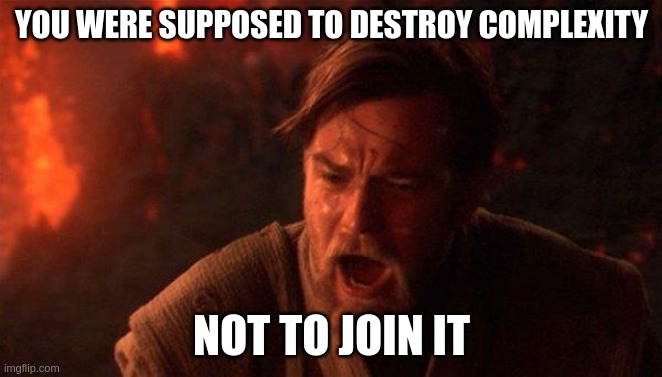
Other causes of complexity are any form of state [8] and feature bloat. Stateless Design is so desirable and successful because it is much easier to reason about, e.g. stateless microservices or stateless network protocols like HTTP. Feature bloat is often induced by product management which forces tech teams to implement useless features [9]. That is usually the consequence of roadmap-driven development. Another source of feature bloat are gold-plating developers who implement potential, artificial requirements which do not exist yet or over-engineer their design with too flexible and complicated abstractions.
In conclusion, developers must manage complexity all the time. The only way to hold complexity in check is continuous and unrelenting refactoring [10]. Constantly clean up your code after adding new features. I allow myself to “invent” my own acronym for that process: Continuous Clean Code Process (CCCP) 🚀
The only way to go fast is to go well. - Uncle Bob
Read Books
Writing is human’s greatest invention to retain and share knowledge. Books are the epitome of writing and the fastest way to absorb knowledge in a short time. More often than not, book authors are the most experienced engineers who share their wisdom, their solutions and last but not least their mistakes. The later is very important, so you don’t have to repeat them yourself:
Those that fail to learn from history are doomed to repeat it. - Winston Churchill
Since books can be large, they can be time consuming to read that’s why you have to choose wisely. I recommend to focus on concepts and general principles. But don’t follow this advice too strictly. If you learn a new technology like a programming language, surely it makes sense to read respective books. Although a good foundational knowledge about programming concepts will massively facilitate and accelerate your learning endeavours. For the curious reader, I shared my favorite books and papers in previous articles.
A Mind For Numbers [11] is my all-time favorite book about the most important concept itself: learning. It will change how you approach new material. By working your way through it, you will become a more potent and motivated learner. An accompanying Coursera course is freely available. Learning is a lifelong undertaking and every engineer should embrace that.
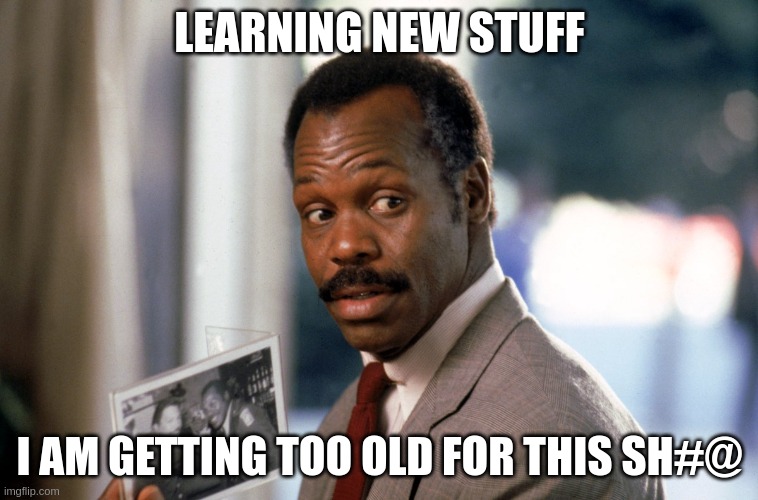
Understand the problem domain
Being the best programmer in the team is not enough. You will be most effective as an engineer if you are able to connect technology with the business problem your trying to solve. A comprehensive view over the problem scope generally reveals completely different solution strategies.
Be excited about the business itself and related areas like marketing, sales, product design etc. Try to speak the same language like the people in different departments instead of bothering them with tech-jargon. It’s not coincidence that an ubiquitous language is one of the most influential concepts from Domain Driven Design (DDD).
With the newly acquired background information you will be much more valuable for your organization. For example, as an engineer you know what is possible and what not, so you can turn down “impossible” requirements immediately instead of wasting days or weeks only to come to the same conclusion. Vice versa, as an engineer you know what is technologically feasible thus you can contribute breakthrough ideas nobody else is able to.
Learn to write good tests
In modern software engineering automatic testing is now common practice. Unfortunately, just writing tests for the sake of testing is not enough. Writing good tests is a delicate venture and more often than not, typical test suites turn out to be flaky, brittle and unmaintainable. In these situations, code changes break many tests which leads to high maintenance effort. As a final resolution, teams do not refactor anymore or just abandon tests completely! In contrast, good tests should enable and encourage refactoring. We know already that refactoring is inevitable in order to control complexity and to prevent a big ball of mud.
Brittle tests are caused by coupling the tests with the system under test (SUT). This violates the main principles of good software design: information hiding and decoupling. Particularly, this is the fault of overusing mocks. Mocking frameworks are affluently available in all programming languages and very easy to integrate. But what most of the people do not know: mocks couple tests with the SUT implementation and make refactorings impossible [12]. Worse yet, mocks require a lot of setup code that pollutes tests and makes them hard to read. Instead of mocks you should use Fakes [13] whenever possible. By using fakes, the SUT implementation will not be exposed. Tests remain decoupled and refactorings possible.
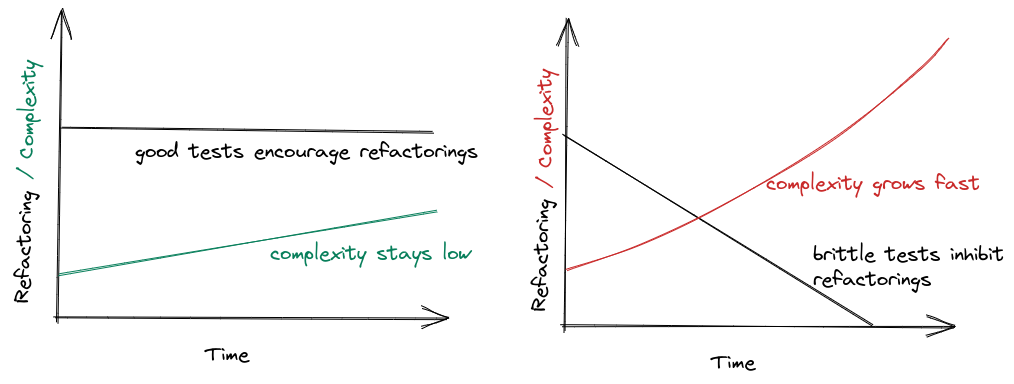
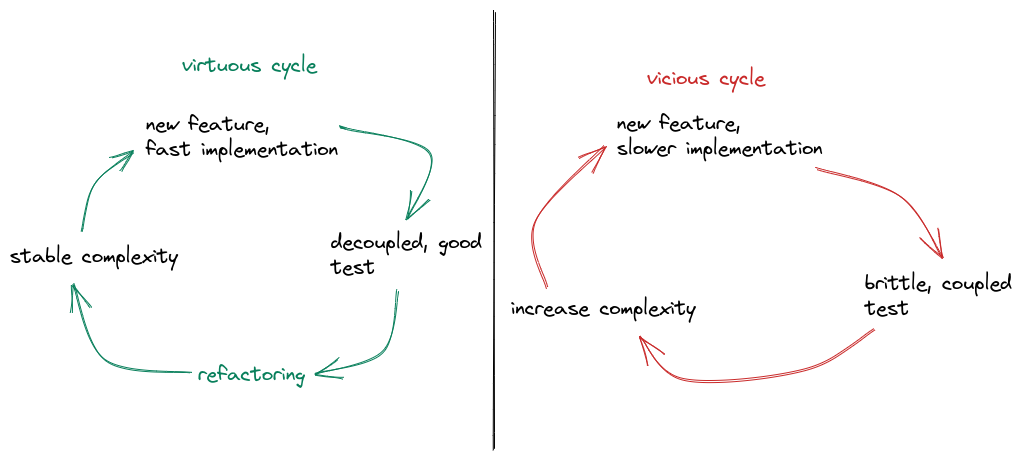
The corner pillars of good software design [14] also apply to tests: Decoupling, achieved by information hiding, encapsulation and modularization, is crucial for a maintainable, coherent and long-living codebase.
Final Words
You made it! I hope you can relate to my selection of the most effective engineering habits. It is a long list, but if you only have one take-away, the most important point is: practice regularly. Programming, and learning in general, is a marathon not a sprint. You will solely improve by continuous exercising.
References
- Teach yourself Programming in Ten Years - Peter Norvig
- When Understanding means Rewriting - Jeff Atwood, Coding Horror Blog
- How to become a Hacker - Eric Steven Raymond
- Lisp Remote Debugging From 60 Million Miles Away
- Simple Made Easy - Rich Hickey
- A Philosophy of Software Design - John Ousterhout
- Big Ball Of Mud
- Out Of The Tar Pit - Ben Mosley, Peter Marks
- A Plea for Lean Software - Niklaus Wirth
- Refactoring - Martin Fowler.
- A Mind For Numbers - Barbara Oakley
- Software Engineering at Google - Titus Winters, Hyrum Wright and more
- Mocks aren’t stubs - Martin Fowler
- Practical Object-Oriented Design - Sandi Metz